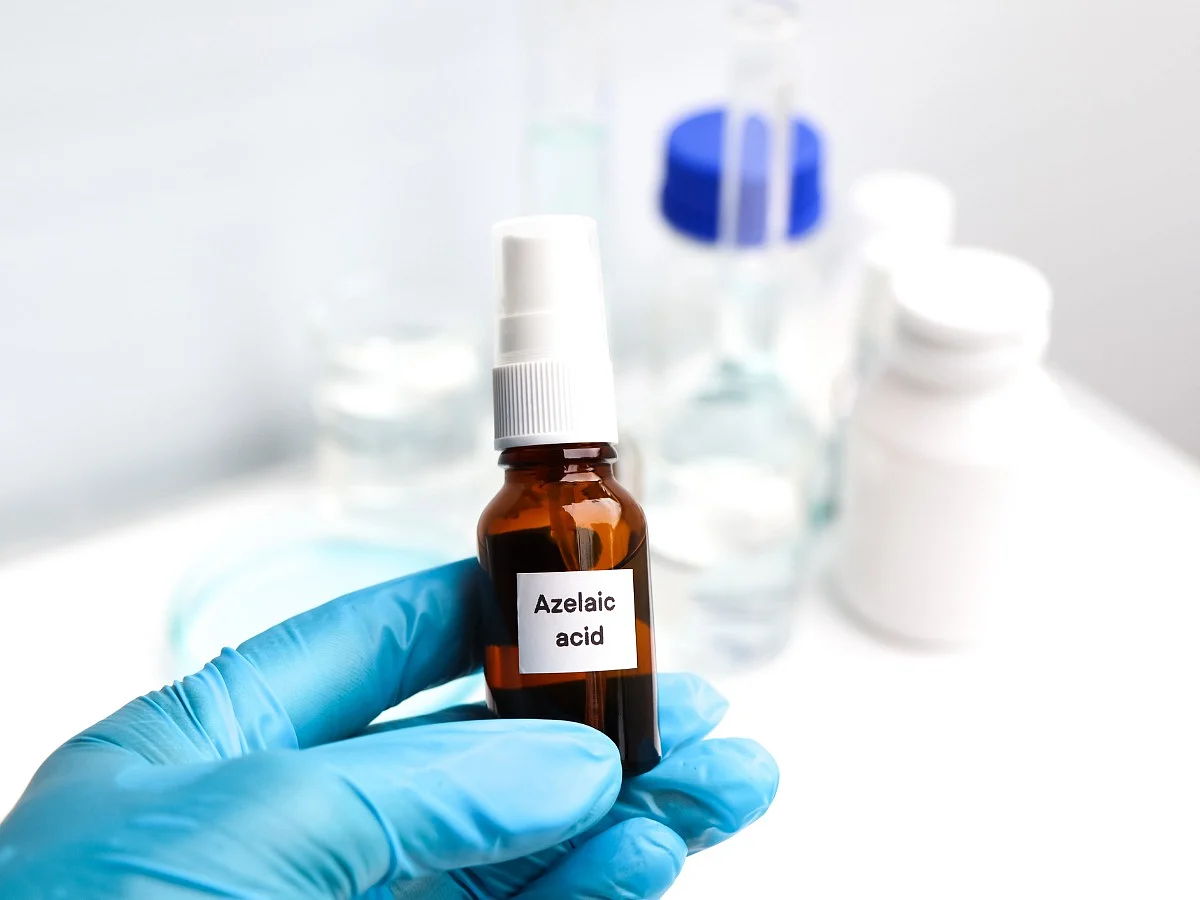5 Benefits Of Azelaic Acid for Skin
Check the benefits and side effects of Azelaic acid for skin and face

advertisement
Azelaic acid is a naturally occurring dicarboxylic acid found in grains such as barley, wheat, and rye. The antimicrobial and anti-inflammatory properties of azelaic acid make it effective in the treatment of skin conditions like acne and rosacea. The acid helps to prevent future outbreaks and cleans the bacteria from pores that cause acne. It has a wide array of benefits which include treating acne and rosacea. It also helps to fade hyperpigmentation and melasma. It is gentle enough even for sensitive skin and is even safe during pregnancy and breast-feeding. Azelaic acid is applied to the skin. It is available in gel, foam, and cream form.
Azelaic acid by itself is not typically a dermatologist’s first choice for acne treatment because it not only takes some time to take effect but also has a few side effects such as skin burning, dryness, and peeling.
When buying azelaic acid products, it is vital to consider your skin type and individual needs. Creams provide extra hydration and so are great for those with dry or sensitive skin. Serums and gels with a lightweight, quick-absorbing formula are ideal for oilier complexions. Foams are ideal for treating a larger area of the skin as they are easier to apply. Azelaic acid plays very well with other skincare products and so can easily be added to your current skin routine.
1. Reduces Inflammation
Azelaic acid helps counter or neutralize the free radicals that cause inflammation. It possesses significant skin-calming effects and further helps to improve redness.
2. Helps Fight Acne
Azelaic acid kills bacteria on the skin that causes acne. It decreases the activity of bacteria called Propionibacterium, the bacteria which is found in acne. The acid is responsible for this due to its bacteriostatic (limits the production of bacteria) and bactericidal properties (kills bacteria).
3. Evens the Skin Tone
Azelaic acid has skin-brightening abilities that help to treat all types of hyperpigmentation including post-inflammatory hyperpigmentation, sun damage, and melasma. The acid also inhibits tyrosinase, a key enzyme in the production of melanin. The acid slows down melanin production and gradually helps to fade dark spots and even out the skin tone.
4. Helps Treat Rosacea
Azelaic acid has anti-inflammatory properties and hence proves to be a gentle but effective option for treating rosacea, a skin condition characterized by redness and visible blood vessels. The acid's ability to reduce swelling and soothe inflammation helps to alleviate the symptoms of rosacea. The acne-fighting properties of Azelaic acid also help in treating breakouts that are commonly seen with rosacea.
5. Helps Treat Melasma
People who deal with melasma know that it is caused by or is made worse by pregnancy. For this condition, azelaic acid is one of the few options you have. Azelaic acid is an active product that is safe to use during this period. It helps to fade dark patches on the skin and for the already existing melasma. The acid acts as a good stand-in product to use during this period until a time it is safe to use more powerful products like hydroquinone.
(At The Quint, we question everything. Play an active role in shaping our journalism by becoming a member today.)